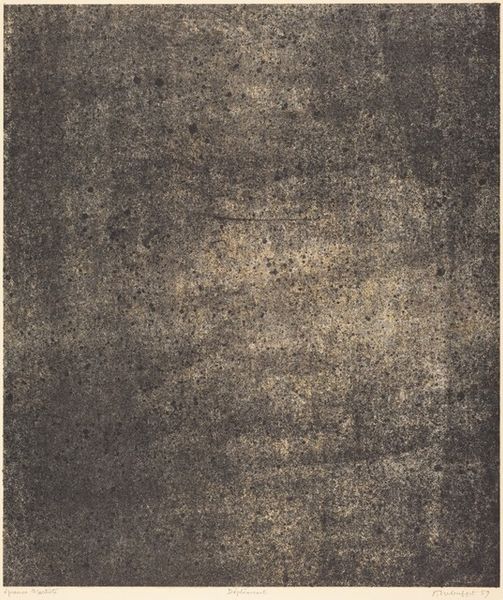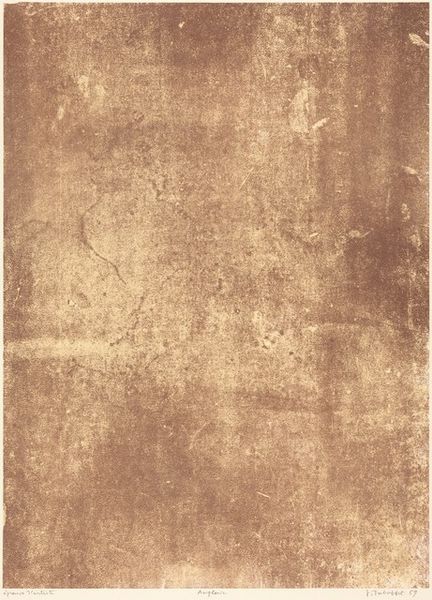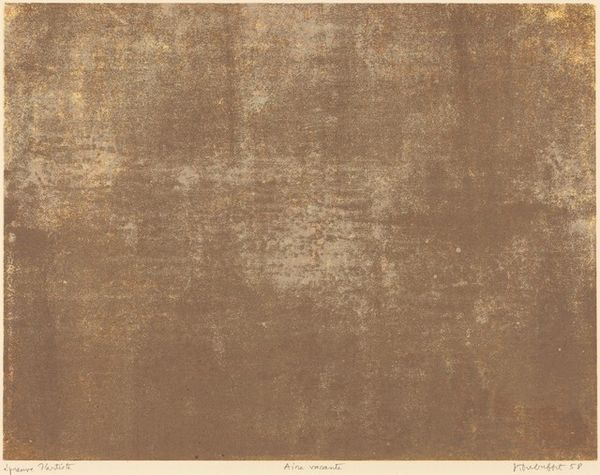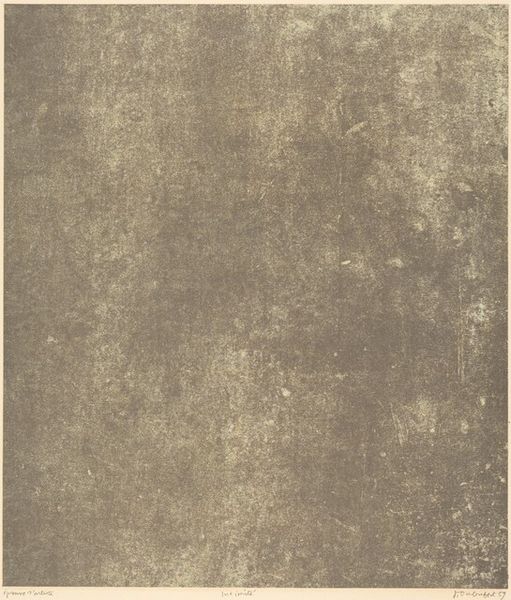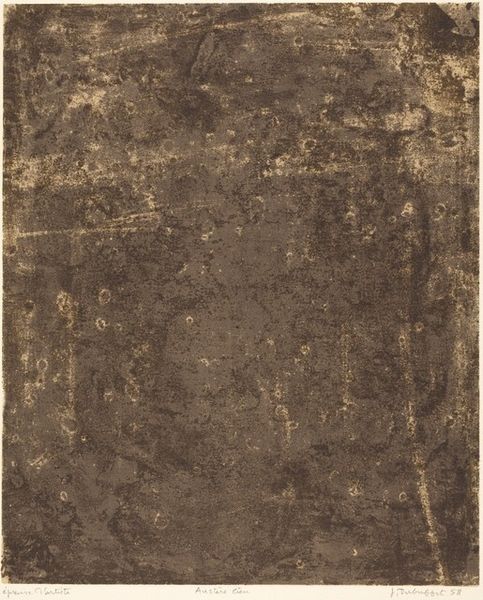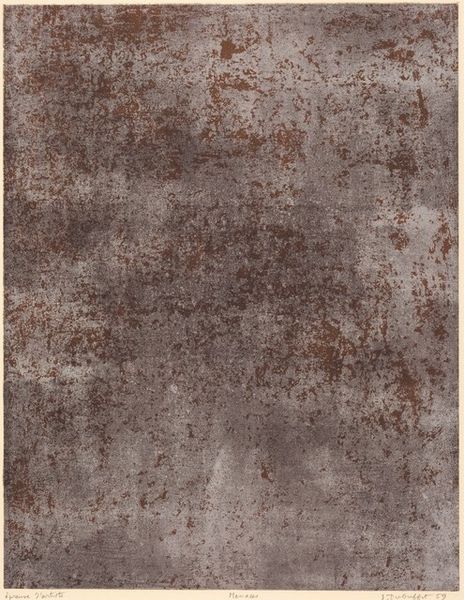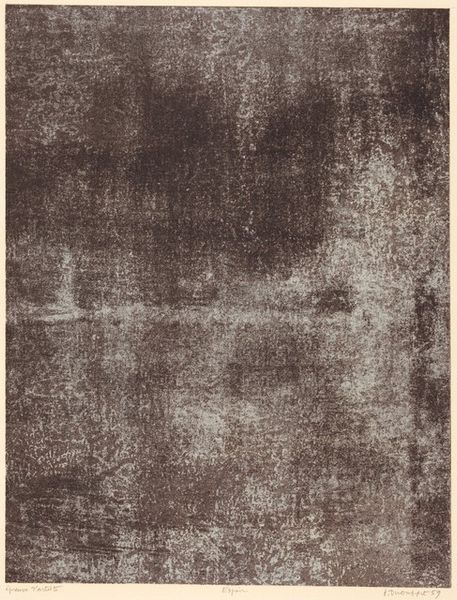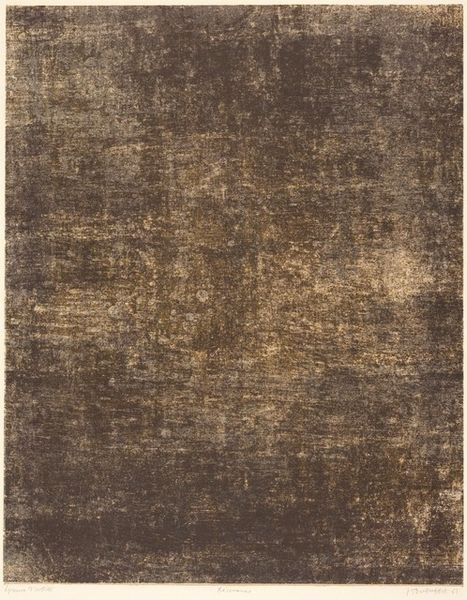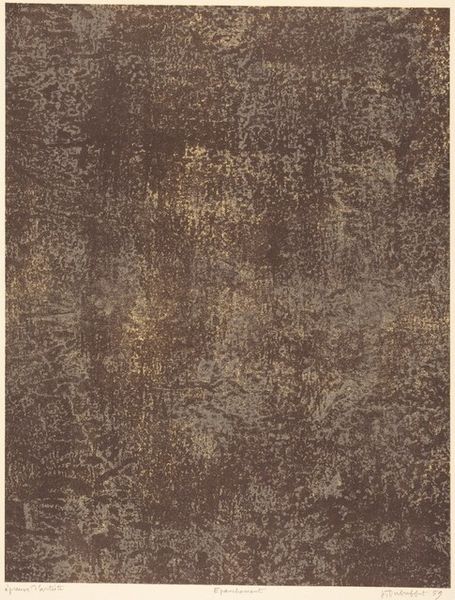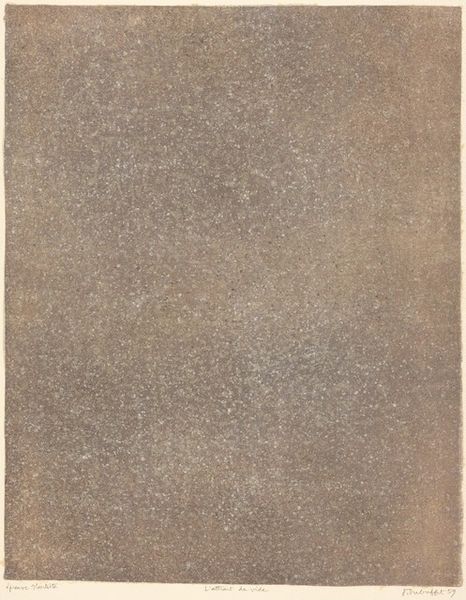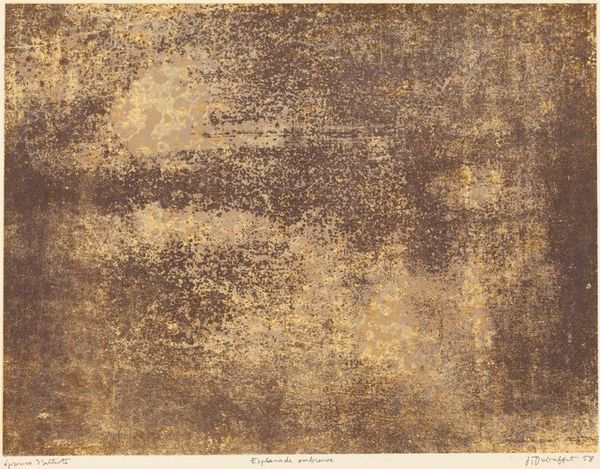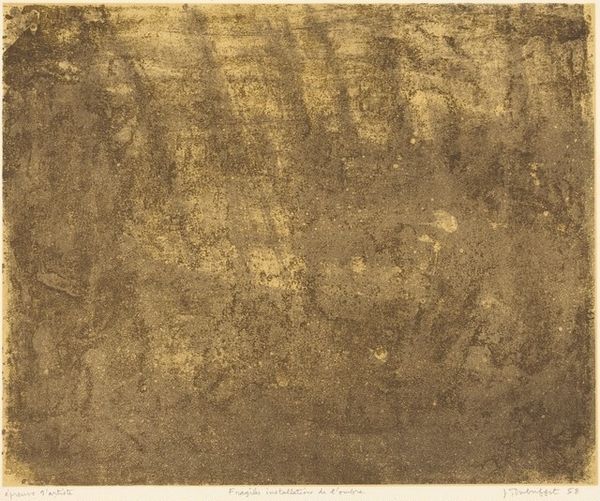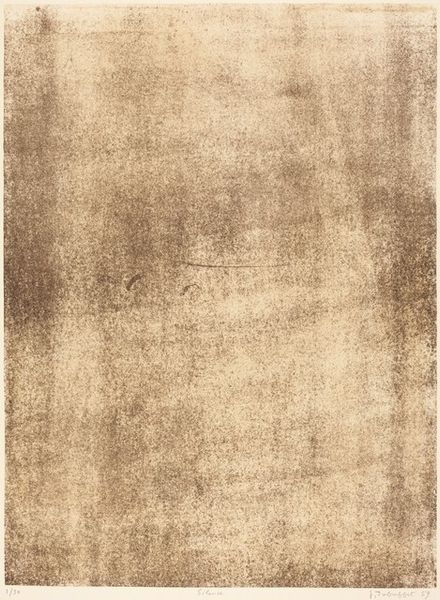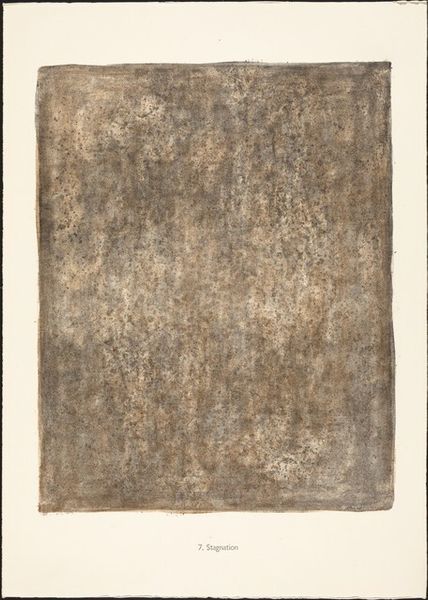
matter-painting, print
#
matter-painting
# print
#
organic pattern
#
art-informel
#
abstraction
#
monochrome
Copyright: National Gallery of Art: CC0 1.0
Curator: Before us hangs Jean Dubuffet's "Rideau d'interdit," created in 1958. It's an excellent example of his matter paintings and a superb representation of Art Informel through printmaking. Editor: My first impression is of a distressed mirror reflecting an antique world. There’s a somber elegance to its mottled surface. I find it hard to believe it is merely an abstract composition given its aged and evocative atmosphere. Curator: Indeed. The monochrome tonality accentuates the textured quality of the surface. One can almost feel the impasto, even though it's a print. The absence of representational imagery encourages a focus on materiality and form, fundamental concerns within formalism. The work achieves a rather poetic suspension—the "curtain" in the title hints at a threshold. Editor: That suspension makes sense in relation to France in the late fifties, where existential questions dominated art and society. Dubuffet’s raw and elemental work, though abstract, became powerful political statements about cultural anxieties. The "forbidden curtain," what could that refer to in post-war society? Curator: One could consider the layering of material—the "matter painting" aspect. Here it seems the "matter" almost becomes the subject. Do you see it as an allegory? Editor: Inevitably. Every artwork participates in a social dialogue, regardless of its abstraction. Dubuffet's rejection of traditional art during a period of decolonization certainly speaks volumes. "Art Informel," in fact, echoes the anxieties of a world recalibrating itself in the shadow of conflict. Curator: So the appeal transcends merely aesthetics. The application reveals much in this dialogue. Editor: Absolutely. The texture of the print invites reflection on themes of societal division and reconstruction. Curator: Contemplating the title, "Rideau d'interdit,"— it conjures feelings of exclusion. I, however, keep finding myself focusing on the qualities of light in the work. Editor: And my thoughts keep running to its possible readings during France’s Algerian War. It just underlines the inherent complexities present in reading any abstract art. Curator: Yes, complexities that enrich one's reading by understanding art's ability to simultaneously exist on a plane of visual engagement, historical narrative and critical assessment. Editor: An engagement of art that fosters questioning.
Comments
No comments
Be the first to comment and join the conversation on the ultimate creative platform.
